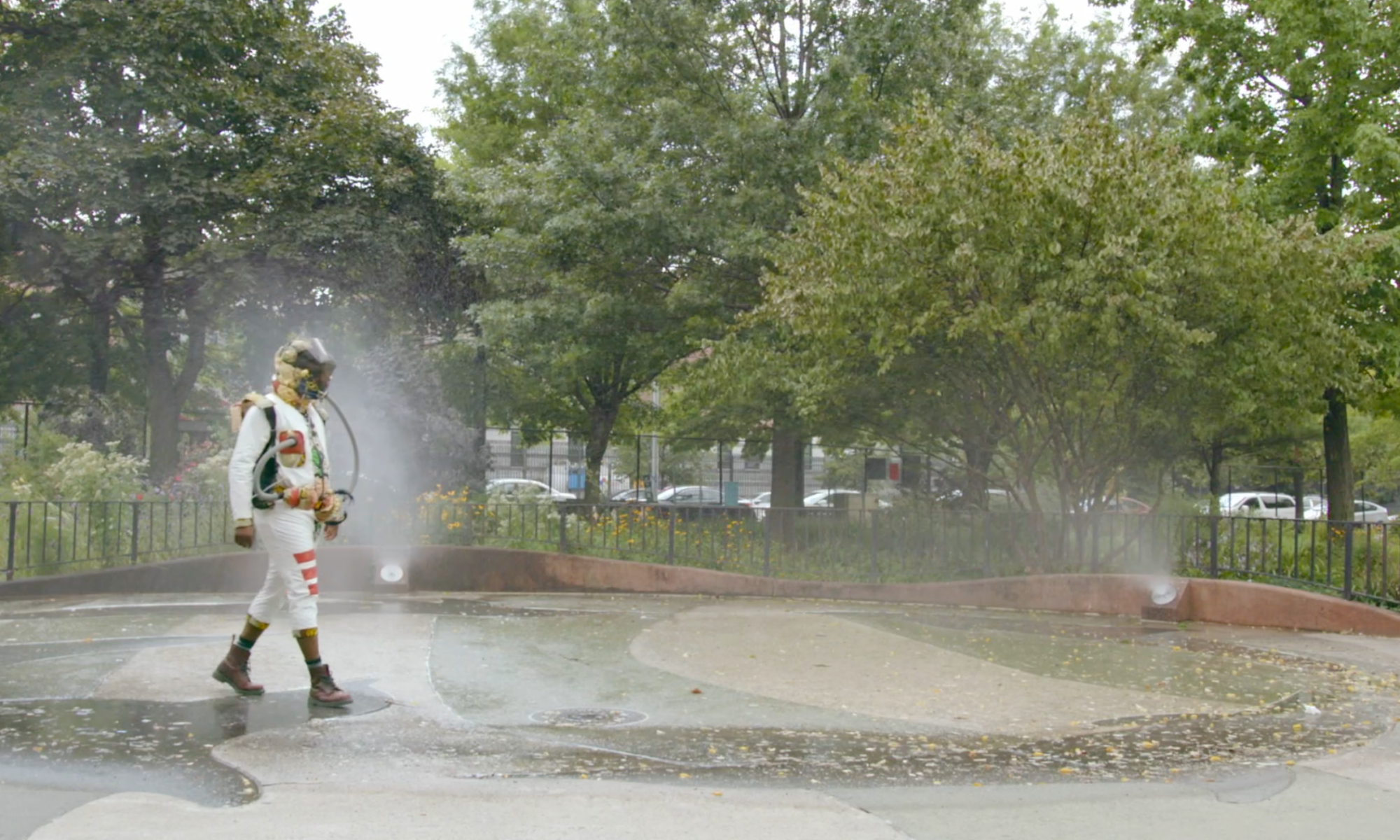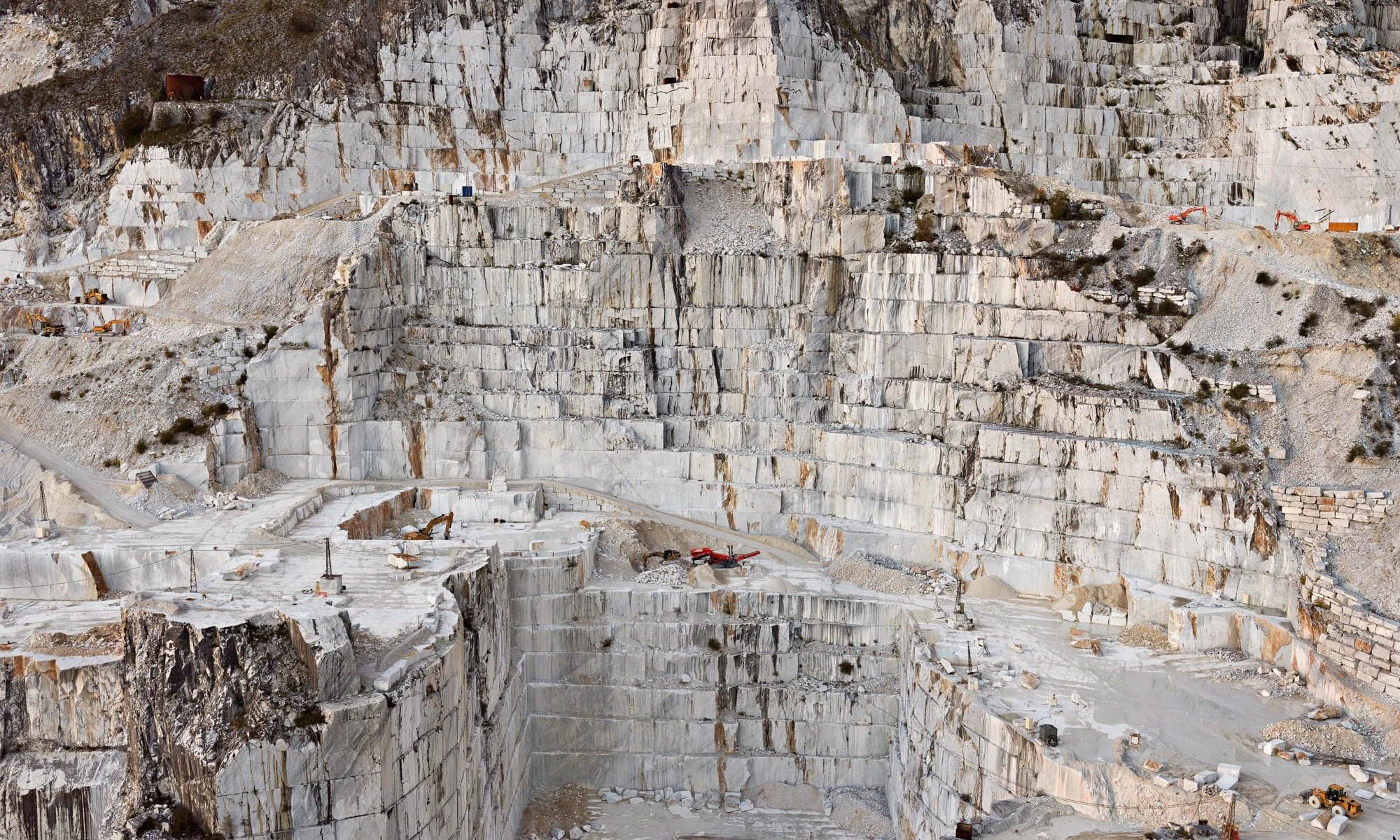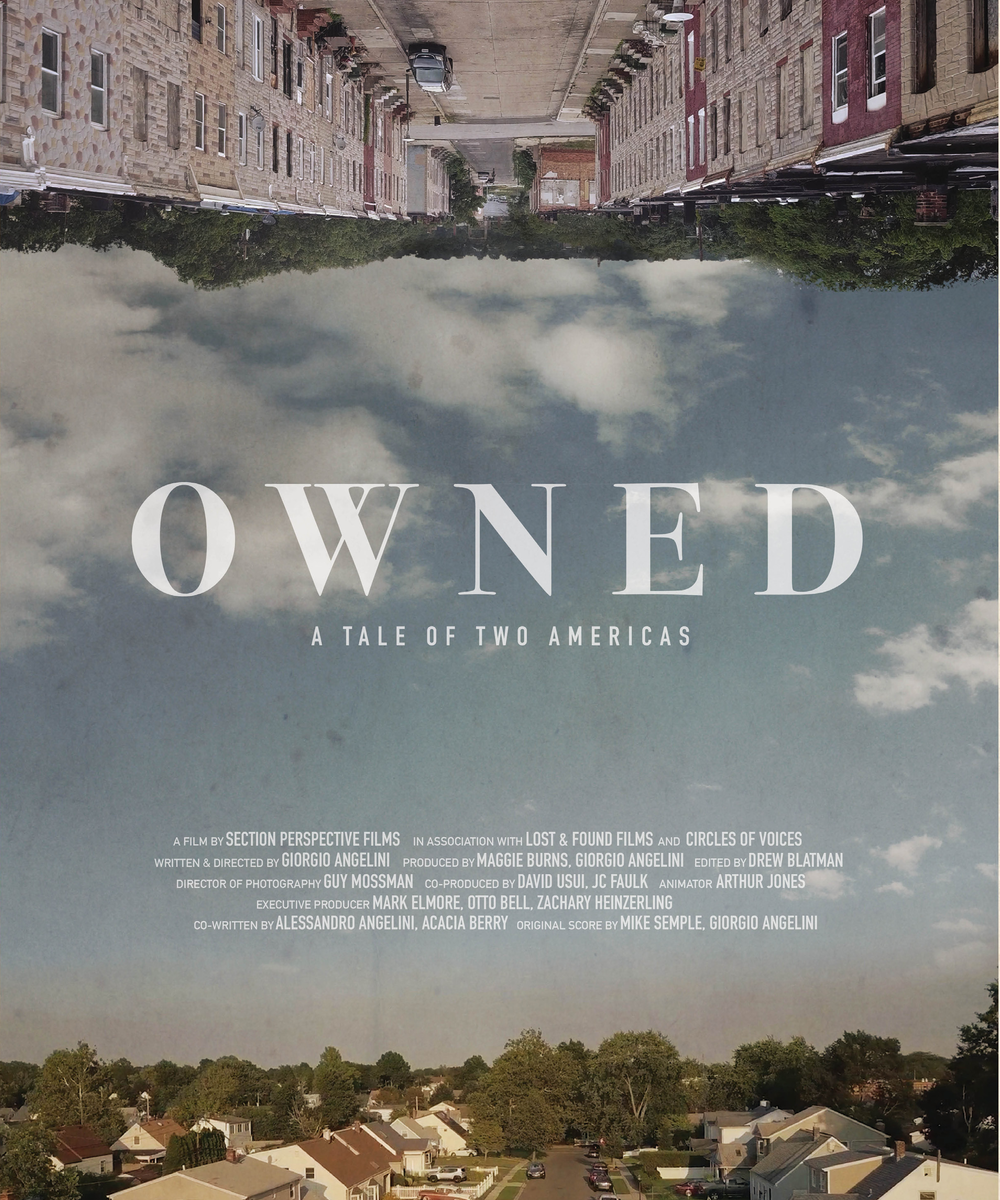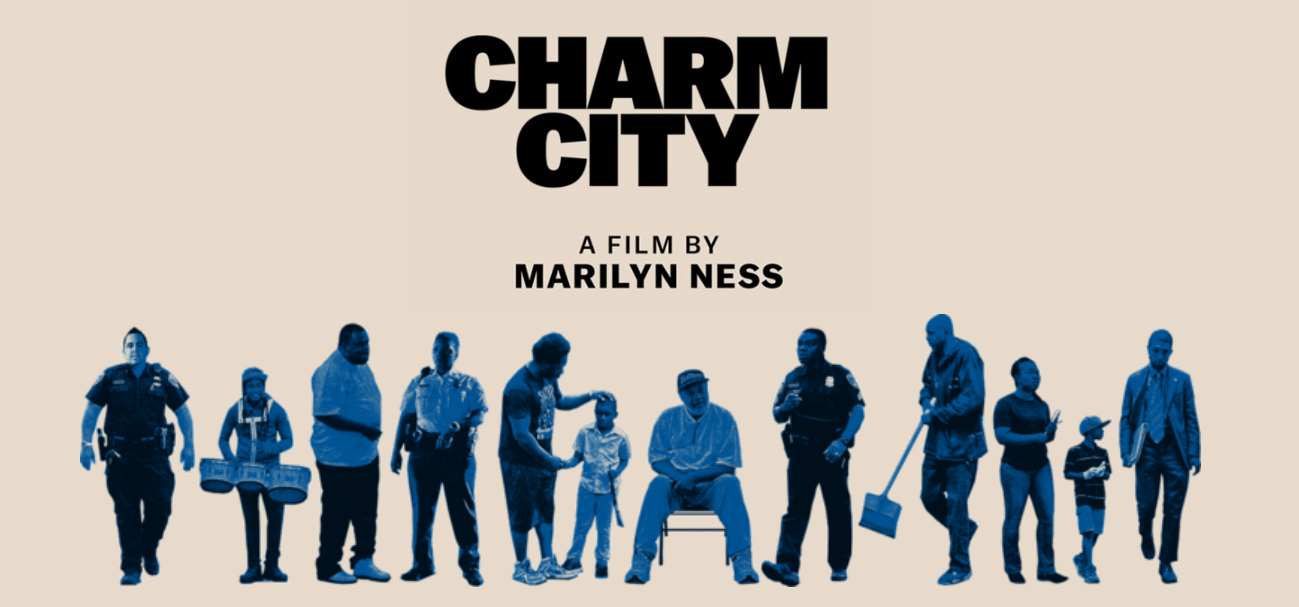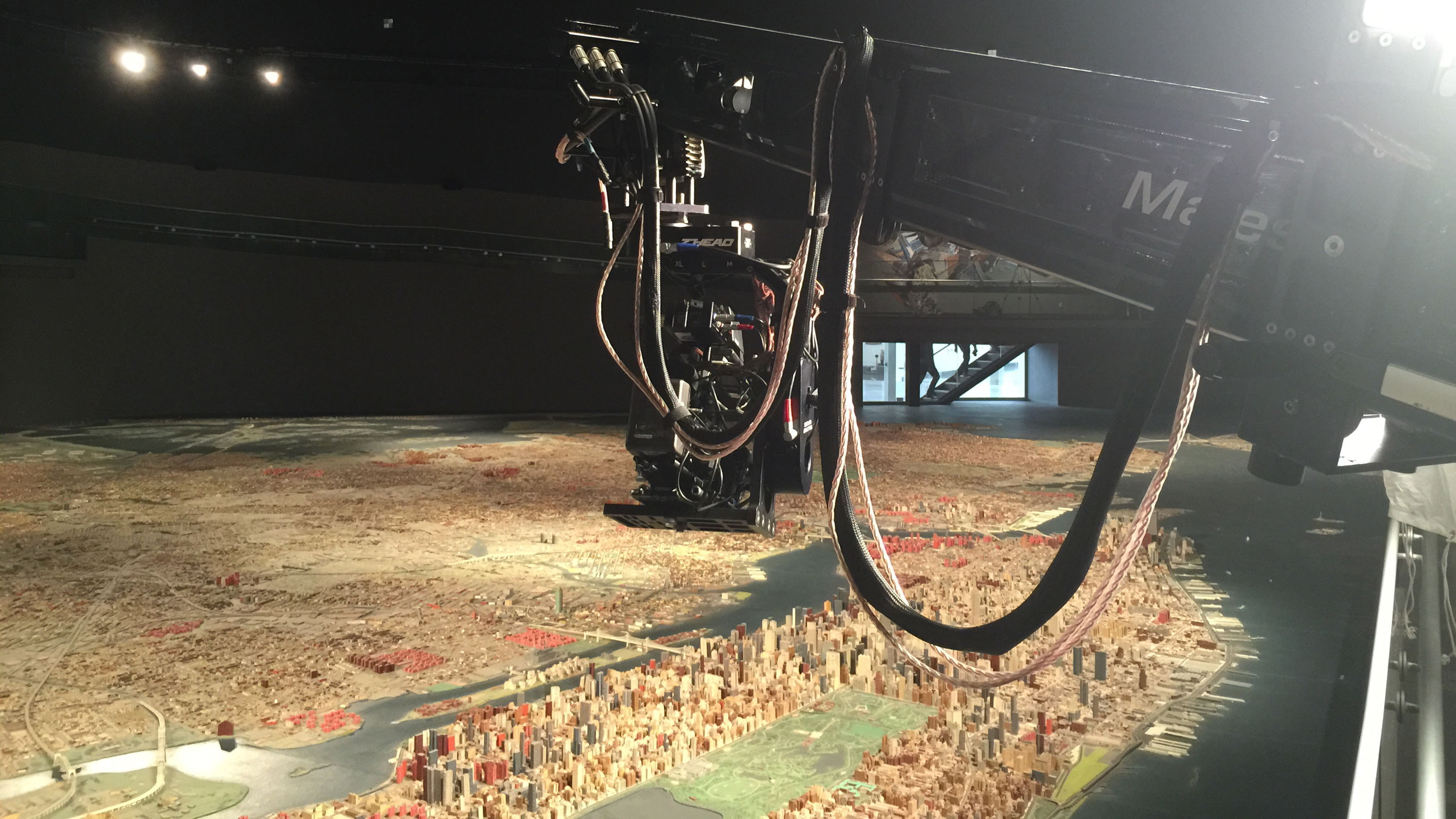Assembled from meandering footage shot in New York City’s outer boroughs over a single summer month in 2017, The Hottest August is ostensibly about the effects of climate change on urban neighborhoods. But what emerges from director Brett Story’s artful and meditative treatment is so much more: a disquieting inquiry into an unsettling age of fear in the face of an uncertain future.
Blending irony with classic cinéma vérité, the camera captures daily discussions and street-corner interactions, from barroom conversations (“talk sports, never politics”) to the mystical peregrinations of a space-suit wearing “Afronaut” who has journeyed back from the future to exchange knowledge and experiences across time (only in New York!).
If we are willing to suspend our need for a linear narrative and surrender to this seemingly random assortment of encounters, what emerges is a powerful new form of film. As the emotions of these people and places seep into our unconscious mind, we uncover a profound portrait of a community perched on the edge of oblivion — ecologically, economically, existentially; what the filmmakers refer to as “a portrait of collective anxiety.”
From the December 2019 issue of Planning Magazine.

